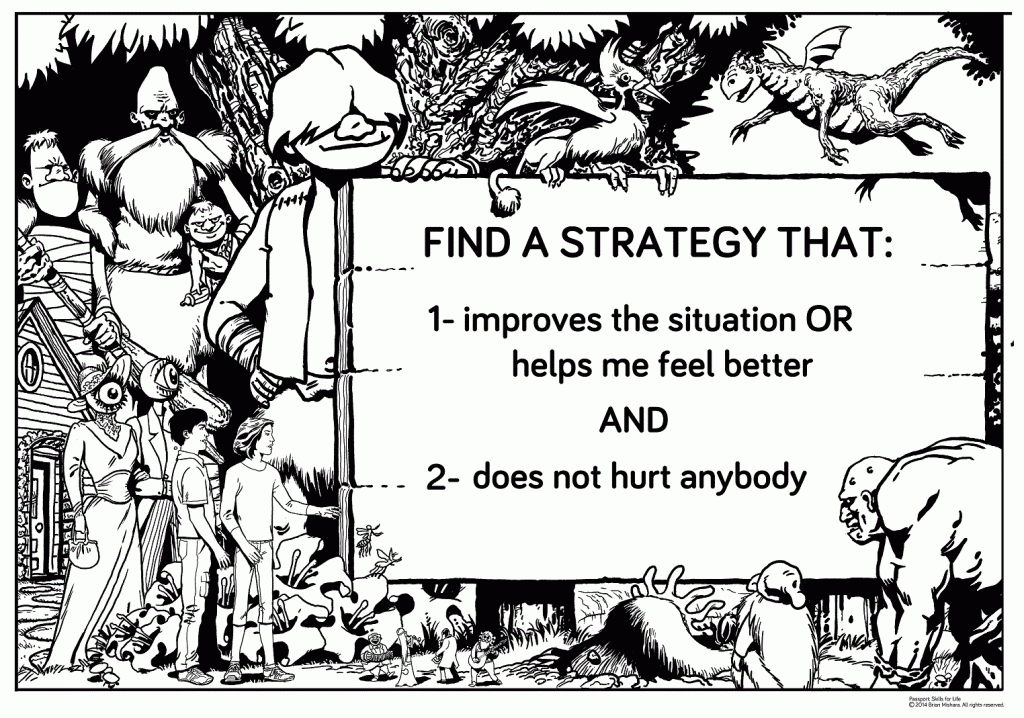Programme
What It Is
Highlighting children’s strengths
Passport: Skills for Life is one of the few programmes that develops children’s coping skills. A coping strategy can be used when we experience a new or difficult situation, for example: a conflict with a friend, jealousy, changing class or school, stress before an exam.
People who have more coping strategies at their disposal can better deal with stress, and have less negative effects of difficult situations. As a result, they experience less distress and are better able to handle life’s challenges. By developing coping strategies early in life, children develop a basis for continuing to use effective coping strategies throughout adolescence and adulthood.
Children learn to identify and evaluate coping strategies on their own, based on two rules:
Examples of strategies children use include: confiding in an adult, finding a quiet place to calm down, petting an animal, listening to music, asking for help, expressing their feelings.
Passport: Skills for Life also helps children develop their social skills, particularly identifying, expressing and regulating their emotions, solving conflicts and managing stress. Learning social and emotional skills allows them to take action as soon as difficulties arise. These skills are closely tied to improved academic behaviours and a better classroom atmosphere, and often lead to reduced school violence.
Passport: Skills for Life provides children tools that will help them throughout their lives!


